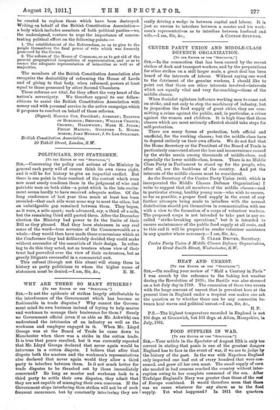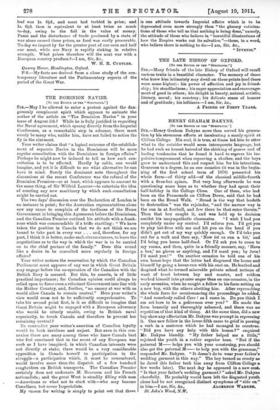FOOD SUPPLIES IN WAR.
[TO THE EDITOR Or THE "SPECTATOR."] Silk—Your article in the Spectator of August 12th is only too correct in stating that panic is one of the greatest dangers England has to face in the event of war, if we are to judge by the history of the past. In the war with Napoleon England only imported one loaf out of every hundred that were con- sumed, and grew all her own meat. The small supply of corn she needed in bad seasons reached the country without inter- ruption owing to her complete command of the sea. After Trafalgar England's Navy was greater than those of the rod of Europe combined. It would therefore seem that then was no cause whatever for any alarm as to the food supply. Yet what happened? In 1811 the quarters
loaf was Is. 6id., and meat had trebled in price; and ls. 64d. then is equivalent to at least twice as much to-day, owing to the fall in the value of money. Panic and the disturbance of trade produced by a state of war alone caused these prices, as food was easily procurable. To-day we import by far the greater part of our corn and half our meat, while our Navy is rapidly sinking in relative strength. What prices therefore will the next war with a European country produce P—I am, Sir, &c.,
W. H. R. CIIRTLER. Quarry House, Headisgton, Orford.
P.S.—My facts are derived from a close study of the con- temporary literature and the Parliamentary reports of the period of the Great War.



































 Previous page
Previous page